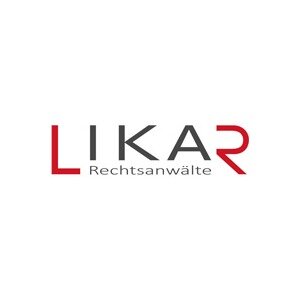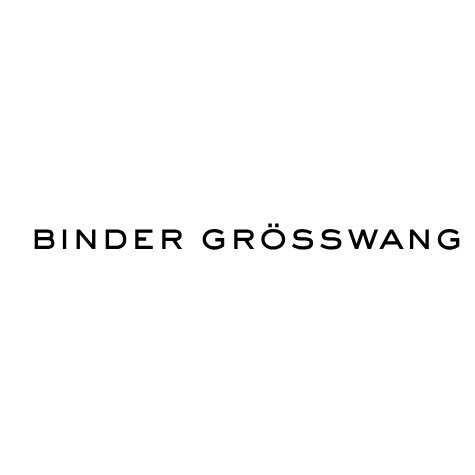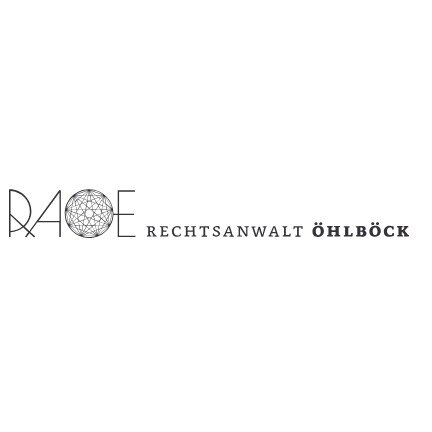Best Trademark Lawyers in Austria
Share your needs with us, get contacted by law firms.
Free. Takes 2 min.
Or refine your search by selecting a city:
List of the best lawyers in Austria
About Trademark Law in Austria
Trademark law in Austria is governed by the Austrian Trademark Protection Act (Markenschutzgesetz). This law provides the framework for the registration, protection, and enforcement of trademarks within Austria. A trademark is any symbol, word, or logo that identifies and distinguishes the source of goods or services. By registering a trademark, businesses can protect their brand identity and legal rights against unauthorized use.
Why You May Need a Lawyer
There are numerous scenarios where individuals or businesses might need legal assistance regarding trademarks:
- Trademark Registration: Navigating the trademark registration process can be complex, including understanding classification and ensuring the uniqueness of your trademark.
- Trademark Infringement: If someone uses your trademark without permission, a lawyer can help enforce your rights and seek remedies.
- Opposition and Cancellation Proceedings: Legal advice may be necessary to oppose a competitor's trademark application or defend against cancellation proceedings.
- Licensing and Assignments: Legal guidance can assist in drafting or reviewing agreements involving the transfer or licensing of trademark rights.
- Global Protection Strategies: Expanding rights internationally often requires coordinating with local and global trademark laws.
Local Laws Overview
Austrian trademark law is largely harmonized with European Union legislation. Key aspects include:
- Absolute and Relative Grounds for Refusal: A trademark will be refused registration for lack of distinctiveness or due to conflict with earlier rights.
- Duration of Protection: Trademark registration is valid for ten years and can be renewed indefinitely.
- Use Requirements: Trademarks must be used in commerce to maintain protection; otherwise, they may be subject to cancellation for non-use.
- Trademark Rights: The owner of a registered trademark has exclusive rights to use the trademark and to prevent its unauthorized use by others.
- Trademark Infringement: Enforcement measures can be taken, including cease-and-desist orders, provisional measures, and damages claims.
Frequently Asked Questions
What is the procedure for registering a trademark in Austria?
The process involves submitting an application to the Austrian Patent Office, which examines the application for compliance with legal requirements. It includes a publication period for potential oppositions before registration.
Can I register a trademark that is descriptive in nature?
Descriptive trademarks may face challenges, as they must be distinctive. Generally, trademarks that merely describe characteristics or qualities of the goods/services may not be registrable.
How long does it take to register a trademark in Austria?
Trademark registration typically takes several months, depending on the complexity of the application and if any oppositions arise during the publication period.
What happens if I don't use my registered trademark?
Failure to use a registered trademark in Austria for a continuous period of five years may result in cancellation for non-use unless valid reasons for the non-use exist.
What constitutes trademark infringement in Austria?
Trademark infringement occurs when an unauthorized party uses a sign that is identical or confusingly similar to a registered trademark in a commercial context, risking consumer confusion.
Can I oppose a trademark application?
Yes, after a trademark is published, third parties have a specific period within which to file an opposition based on prior conflicting rights or other valid grounds.
Are there international treaties related to trademark protection applicable in Austria?
Austria is a member of the Madrid System, allowing for international registration of trademarks, and adheres to treaties such as the Paris Convention and the TRIPS Agreement.
Can a trademark be revoked or canceled?
Yes. A trademark can be revoked for non-use, or canceled if it's proven the registration was obtained in bad faith or if it ceases to comply with legal requirements.
What is the difference between a trademark and a company name?
A trademark is used to identify goods or services, while a company name identifies a business entity. Both can be registered separately and provide different kinds of protection.
Can I license my trademark to another company?
Yes, trademark owners can license their trademarks to other parties with specific terms and conditions outlined in a licensing agreement.
Additional Resources
For additional support, individuals can access resources through:
- Austrian Patent Office: Provides information on trademark registration and procedures.
- World Intellectual Property Organization (WIPO): Offers resources and guides on international trademark protection.
- European Union Intellectual Property Office (EUIPO): Manages trademarks across the EU and provides a variety of services.
- Legal Aid Associations: Offer guidance and sometimes financial assistance for trademark issues.
Next Steps
If you require legal assistance in trademark matters, consider the following steps:
- Consult with a Trademark Attorney: Seek specialists who are experienced in Austrian trademark law for tailored advice.
- Prepare Documentation: Gather relevant documents like previous registrations, correspondence, and contracts, which can be useful during consultations.
- Utilize Free Resources: Start with available resources to familiarize yourself with the basics before seeking expert advice.
- Evaluate Legal Options: Assess whether it’s best to pursue registration, infringement proceedings, or other legal resolutions based on expert recommendations.
Lawzana helps you find the best lawyers and law firms in Austria through a curated and pre-screened list of qualified legal professionals. Our platform offers rankings and detailed profiles of attorneys and law firms, allowing you to compare based on practice areas, including Trademark, experience, and client feedback.
Each profile includes a description of the firm's areas of practice, client reviews, team members and partners, year of establishment, spoken languages, office locations, contact information, social media presence, and any published articles or resources. Most firms on our platform speak English and are experienced in both local and international legal matters.
Get a quote from top-rated law firms in Austria — quickly, securely, and without unnecessary hassle.
Disclaimer:
The information provided on this page is for general informational purposes only and does not constitute legal advice. While we strive to ensure the accuracy and relevance of the content, legal information may change over time, and interpretations of the law can vary. You should always consult with a qualified legal professional for advice specific to your situation.
We disclaim all liability for actions taken or not taken based on the content of this page. If you believe any information is incorrect or outdated, please contact us, and we will review and update it where appropriate.
Browse trademark law firms by city in Austria
Refine your search by selecting a city.















